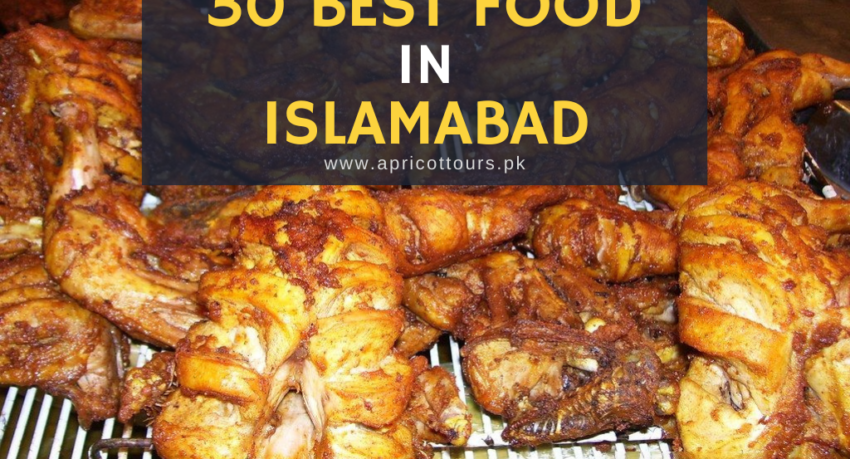Introduction
Welcome to a tantalizing exploration of the vibrant culinary tapestry of Islamabad, where flavors converge to create an unforgettable gastronomic experience. Nestled within the heart of Pakistan, the food in Islamabad reflects a rich cultural heritage, boasting a diverse array of delectable dishes that captivate the senses and honor the essence of Pakistani cuisine. In this journey through the city’s food landscape, we’ll delve into the essence of “food in Islamabad,” uncovering its eclectic mix of flavors, cherished traditional recipes, and the cultural significance that intertwines with each dish. From aromatic spices to mouthwatering specialties, join us as we uncover the unique culinary delights that define Islamabad’s culinary identity.
Here, amidst the bustling streets and cozy eateries, one can embark on a flavorful adventure that transcends mere dining; it’s a cultural immersion into a world where each bite tells a story. Throughout this exploration, we’ll unravel the city’s culinary tapestry, exploring its unique dishes, diverse influences, and the remarkable fusion of flavors that set “food in Islamabad” apart within the realm of Pakistani gastronomy. Get ready to uncover the secrets behind signature dishes, experience the warmth of local hospitality, and embark on a journey that celebrates the sheer diversity and culinary prowess that defines Islamabad’s food culture.
List of 30 Top Food in Islamabad
| S. No | Name of Food/Dish | Category | Price Range (USD & EUR) | Main Ingredients (if available) |
|---|---|---|---|---|
| 1 | Seekh Kebabs | Meat dish | $5-$20 USD, €4-€17 EUR | Ground meat, spices |
| 2 | Nihari | Meat dish | $8-$25 USD, €6-€20 EUR | Slow-cooked meat, spices |
| 3 | Chapli Kebab | Meat dish | $6-$18 USD, €5-€15 EUR | Ground meat, spices |
| 4 | Biryani | Savory | $7-$22 USD, €6-€18 EUR | Rice, meat, spices |
| 5 | Haleem | Savory | $6-$20 USD, €5-€17 EUR | Lentils, meat, wheat |
| 6 | Gol Gappay (Pani Puri) | Savory | $2-$8 USD, €2-€7 EUR | Crispy shells, tangy water |
| 7 | Chicken Karahi | Meat dish | $6-$18 USD, €5-€15 EUR | Chicken, spices |
| 8 | Aloo Tikki | Veg dish | $3-$10 USD, €3-€8 EUR | Potatoes, spices |
| 9 | Daal Chawal | Veg dish | $4-$12 USD, €3-€10 EUR | Lentils, rice |
| 10 | Samosas | Savory | $2-$8 USD, €2-€7 EUR | Pastry, spiced filling |
| 11 | Channa Chaat | Savory | $3-$10 USD, €3-€8 EUR | Chickpeas, spices |
| 12 | Chicken Handi | Meat dish | $7-$22 USD, €6-€18 EUR | Chicken, creamy sauce |
| 13 | Kunafa | Pastry | $8-$25 USD, €7-€20 EUR | Cheese, phyllo pastry |
| 14 | Jalebi | Sweet | $2-$8 USD, €2-€7 EUR | Deep-fried batter, syrup |
| 15 | Paaye | Meat dish | $6-$20 USD, €5-€17 EUR | Trotters, spices |
| 16 | Chicken Tandoori | Meat dish | $6-$18 USD, €5-€15 EUR | Marinated chicken |
| 17 | Beef Pulao | Savory | $7-$22 USD, €6-€18 EUR | Rice, beef, spices |
| 18 | Kheer | Sweet | $3-$12 USD, €3-€10 EUR | Rice pudding, nuts |
| 19 | Rabri | Sweet | $4-$15 USD, €4-€13 EUR | Reduced milk, sugar |
| 20 | Sheer Khurma | Sweet | $5-$18 USD, €4-€15 EUR | Vermicelli, milk, dates |
| 21 | Gajar Ka Halwa | Sweet | $4-$14 USD, €4-€12 EUR | Carrots, milk, sugar |
| 22 | Paratha Rolls | Savory | $3-$10 USD, €3-€8 EUR | Flatbread, fillings |
| 23 | Butter Chicken | Meat dish | $8-$25 USD, €7-€20 EUR | Chicken, buttery sauce |
| 24 | Zarda | Sweet | $3-$10 USD, €3-€8 EUR | Sweet rice, nuts |
| 25 | Shahi Tukray | Sweet | $4-$15 USD, €4-€13 EUR | Bread, milk, cardamom |
| 26 | Charsi Tikka | Meat dish | $6-$18 USD, €5-€15 EUR | Spiced grilled meat |
| 27 | Dahi Bhallay | Savory | $3-$10 USD, €3-€8 EUR | Lentil balls, yogurt |
| 28 | Sajji | Meat dish | $8-$25 USD, €7-€20 EUR | Roasted whole chicken |
| 29 | Chicken Shawarma | Meat dish | $5-$15 USD, €4-€13 EUR | Grilled chicken, wrap |
| 30 | Palak Paneer | Veg dish | $6-$18 USD, €5-€15 EUR | Spinach, cottage cheese |
| S. No | Name of Food/Dish | Category | Price Range (USD & EUR) | Main Ingredients (if available) |
Note: The price range provided is approximate and may vary depending on the restaurant or vendor.
Seekh Kebabs: Seekh Kebabs are minced meat skewers, typically made from ground beef or lamb mixed with various spices like cumin, coriander, ginger, and garlic. The meat is shaped onto skewers and grilled, imparting a smoky flavor. It’s often served with naan bread, mint chutney, and sliced onions.
Nihari: Nihari is a slow-cooked stew made with tender meat (usually beef or mutton) and a rich, flavorful gravy. The dish is simmered overnight with a blend of spices such as cinnamon, cloves, cardamom, and fennel seeds, resulting in a robust and aromatic curry. It’s traditionally served with naan bread or steamed rice.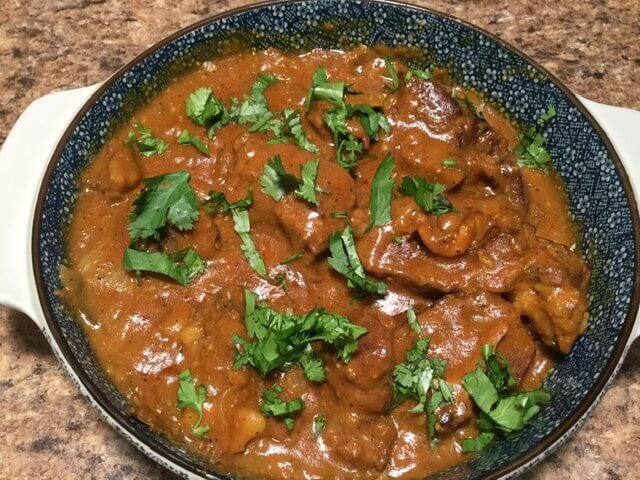
Chapli Kebab: Originating from Peshawar but popular in Islamabad, Chapli Kebabs are large, flat patties made from minced meat, typically beef or lamb. The meat is mixed with various spices like coriander, chili, and cumin, along with onions, tomatoes, and herbs. These patties are shallow-fried and often enjoyed with naan and a side of yogurt sauce.
Biryani: Biryani is a fragrant rice dish cooked with marinated meat (chicken, beef, or mutton), basmati rice, and a blend of aromatic spices like saffron, cardamom, cloves, and bay leaves. The layers of rice and meat are cooked together in a sealed pot, allowing the flavors to meld and create a deliciously seasoned dish often served with raita (yogurt-based sauce).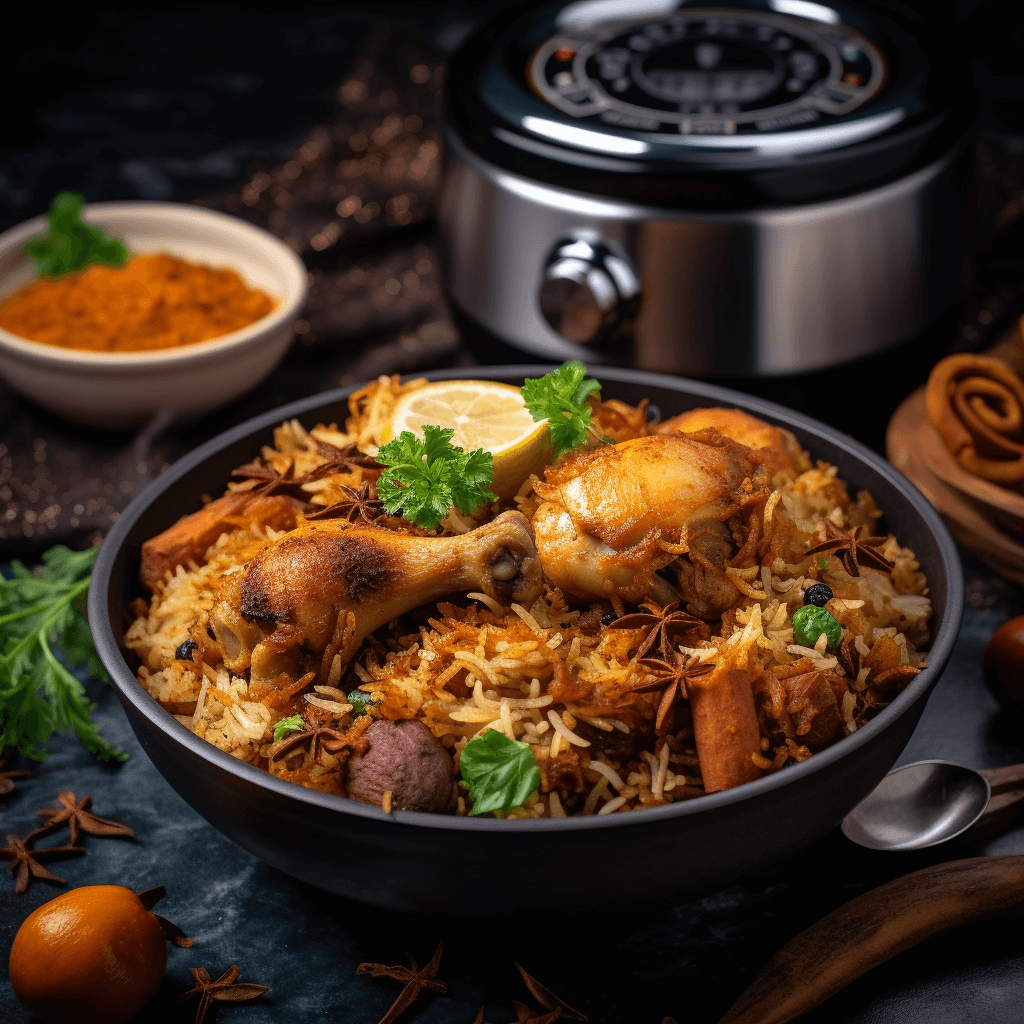
Haleem: Haleem is a thick, porridge-like stew made from wheat, barley, lentils, and meat (usually chicken, beef, or mutton). The ingredients are slow-cooked for hours with a variety of spices, resulting in a rich and creamy texture. It’s garnished with fried onions, fresh ginger, chopped cilantro, and a squeeze of lemon before serving.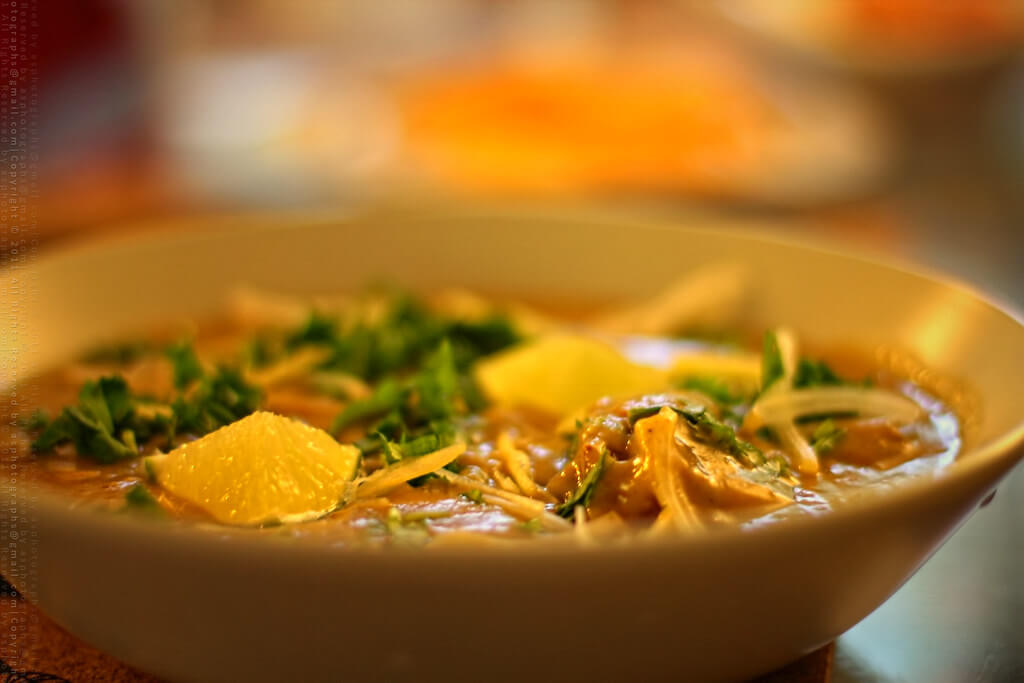
Gol Gappay (Pani Puri): Gol Gappay, also known as Pani Puri, are crispy hollow puris filled with a mixture of flavored water (pani), tamarind chutney, chickpeas, potatoes, and spices. These bite-sized snacks offer a burst of sweet, tangy, and spicy flavors in each bite, making them a popular street food delight.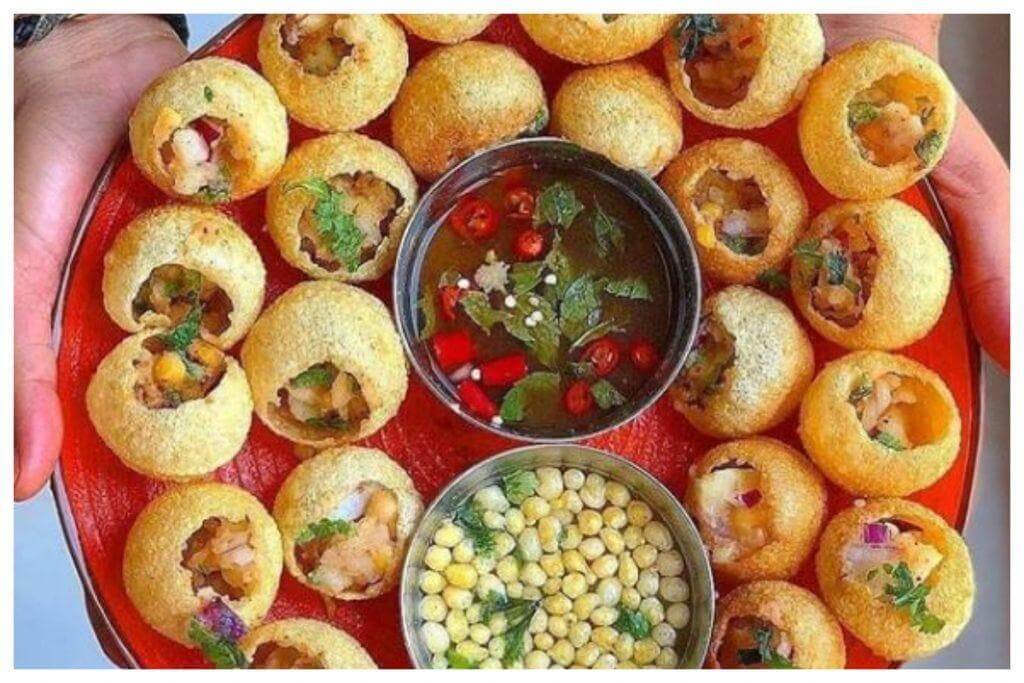
Chicken Karahi: Chicken Karahi is a spicy and tangy curry made with tender chicken pieces cooked in a karahi (wok) with tomatoes, ginger, garlic, and a blend of aromatic spices like cumin, coriander, and garam masala. It’s cooked until the chicken is tender and the flavors are well-incorporated, often served with naan or roti.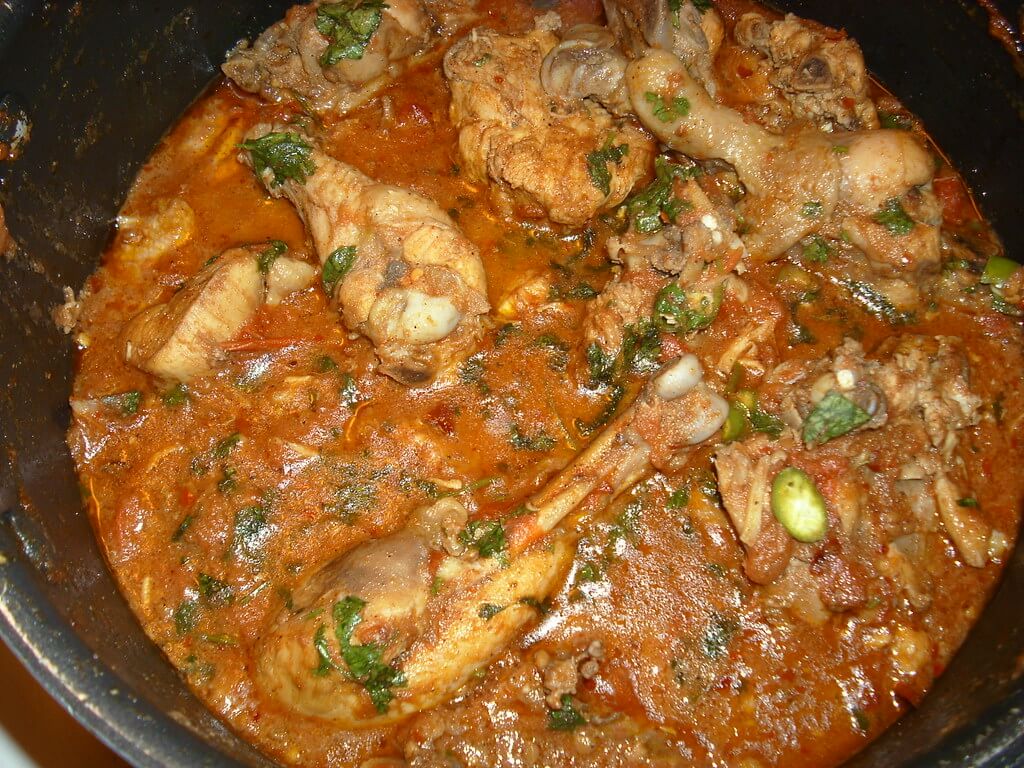
Aloo Tikki: Aloo Tikki consists of mashed potatoes mixed with various spices like cumin, coriander, and chili, formed into patties, and shallow-fried until crispy. These potato patties are served with tamarind chutney, mint sauce, and are often accompanied by chickpeas or yogurt for a flavorful snack.
Daal Chawal: Daal Chawal is a simple yet satisfying dish consisting of lentils (daal) cooked to a creamy consistency with spices and served with steamed rice (chawal). It’s a staple comfort food in Pakistan, with variations in seasoning and lentil types depending on regional preferences.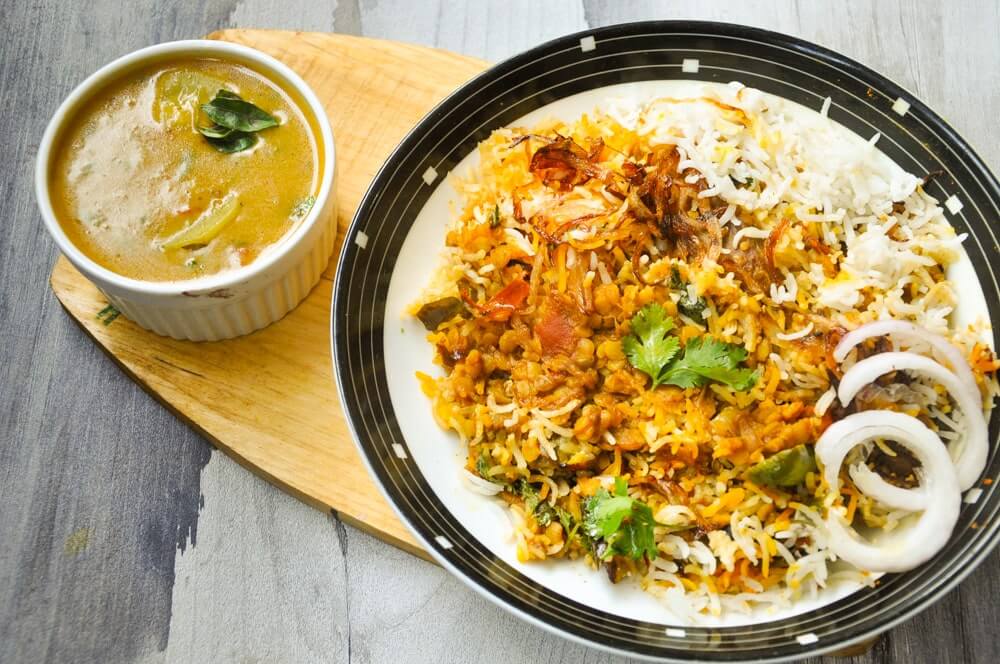
Samosas: Samosas are triangular pastries filled with a savory mixture of spiced potatoes, peas, and sometimes minced meat. The pastry shell is crispy and golden after deep-frying, making it a popular snack or appetizer often served with tamarind or mint chutney.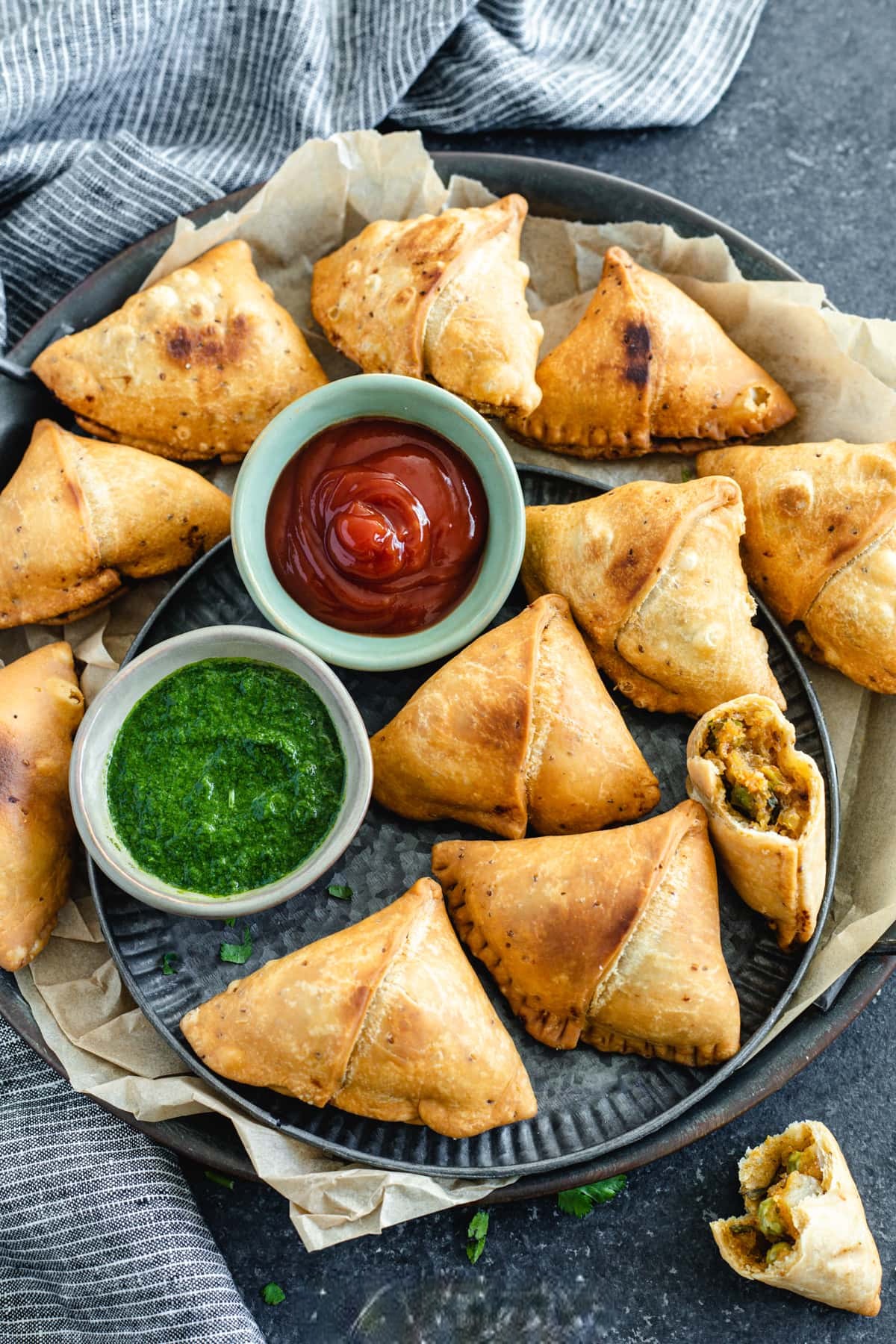
Channa Chaat: Channa Chaat is a refreshing and tangy chickpea salad made with boiled chickpeas, chopped onions, tomatoes, green chilies, and spices like chaat masala and cumin. It’s garnished with fresh coriander, tamarind chutney, and a squeeze of lemon, offering a burst of flavor in each bite.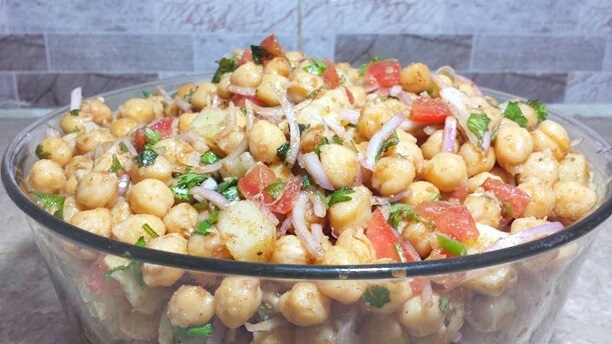
Chicken Handi: Chicken Handi is a creamy and aromatic chicken curry cooked in a handi (clay pot). The dish features tender chicken pieces cooked with tomatoes, onions, yogurt, cream, and a blend of spices, resulting in a rich and flavorful gravy.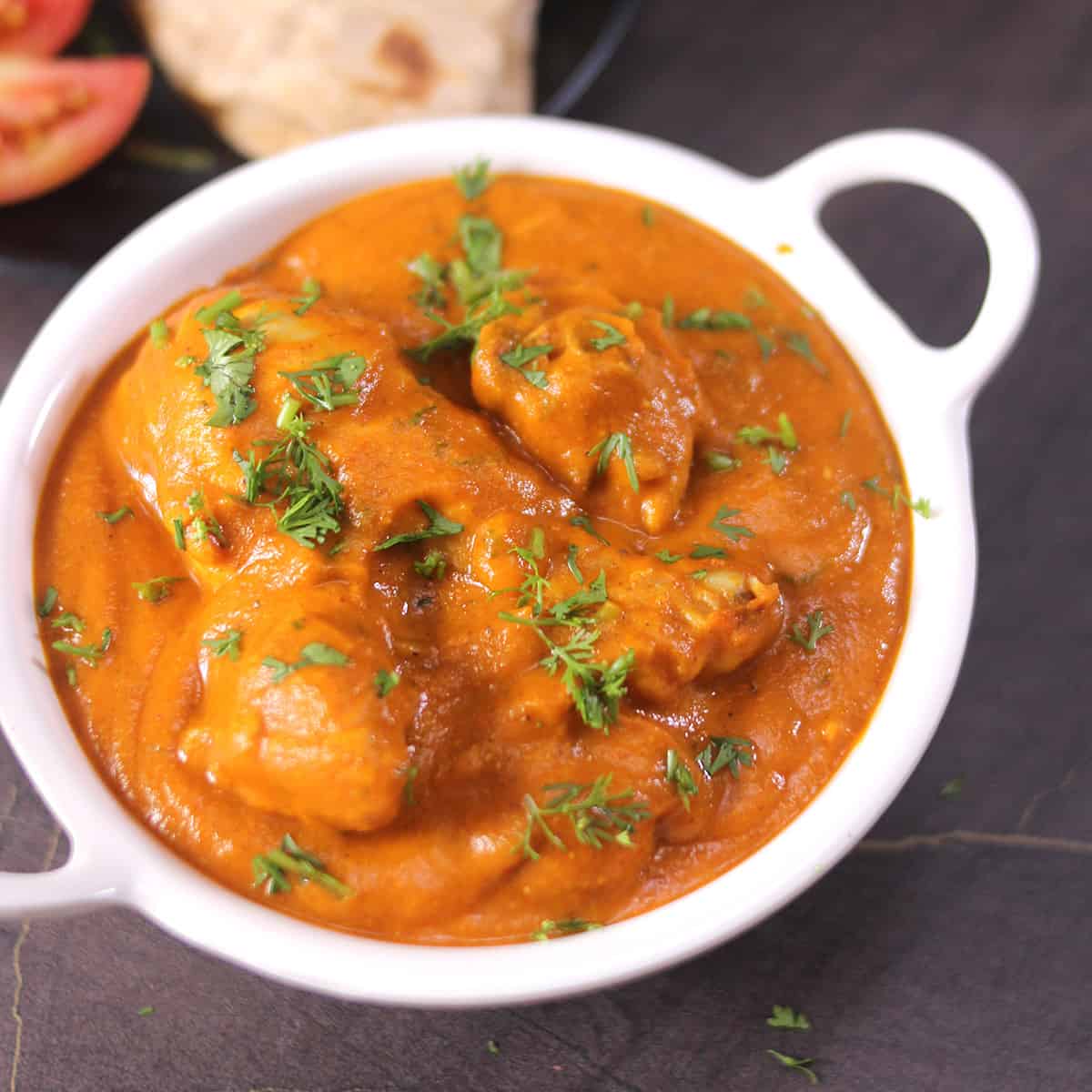
Kunafa: Kunafa is a delectable Middle Eastern dessert made with thin noodle-like pastry, usually shredded phyllo dough (kataifi), layered with a generous amount of sweet cheese or cream filling. The pastry is baked until golden and crispy, then drenched in a sugar syrup infused with rose or orange blossom water, creating a delightful combination of textures and flavors.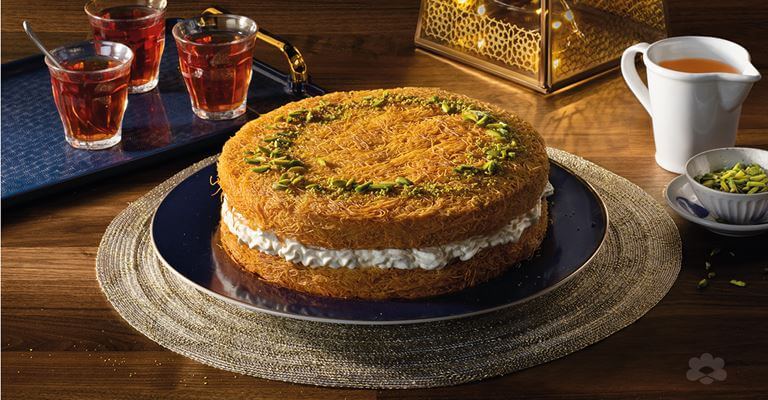
Jalebi: Jalebi is a popular sweet treat made by deep-frying a batter of flour, yogurt, and sugar syrup into intricate spiral shapes. These crispy, syrup-soaked spirals are served warm and offer a sweet, sticky indulgence enjoyed especially during festivals and celebrations.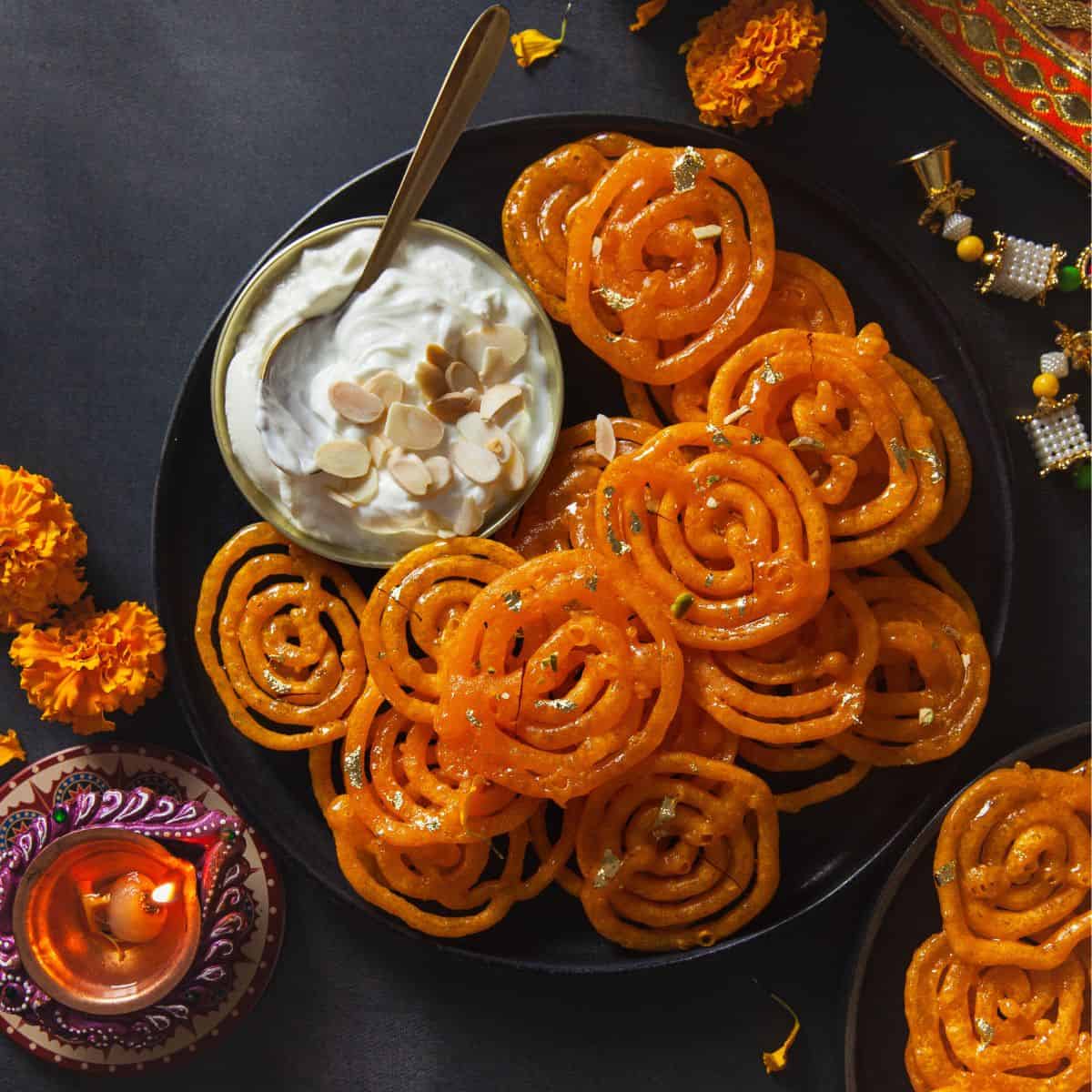
Paaye: Paaye is a traditional dish made from simmering cow or goat trotters (feet) with various spices for several hours until the gelatinous meat becomes tender and flavorful. The broth is rich and aromatic, often enjoyed with naan or rice, and garnished with fresh ginger, green chilies, and a squeeze of lemon for added zest.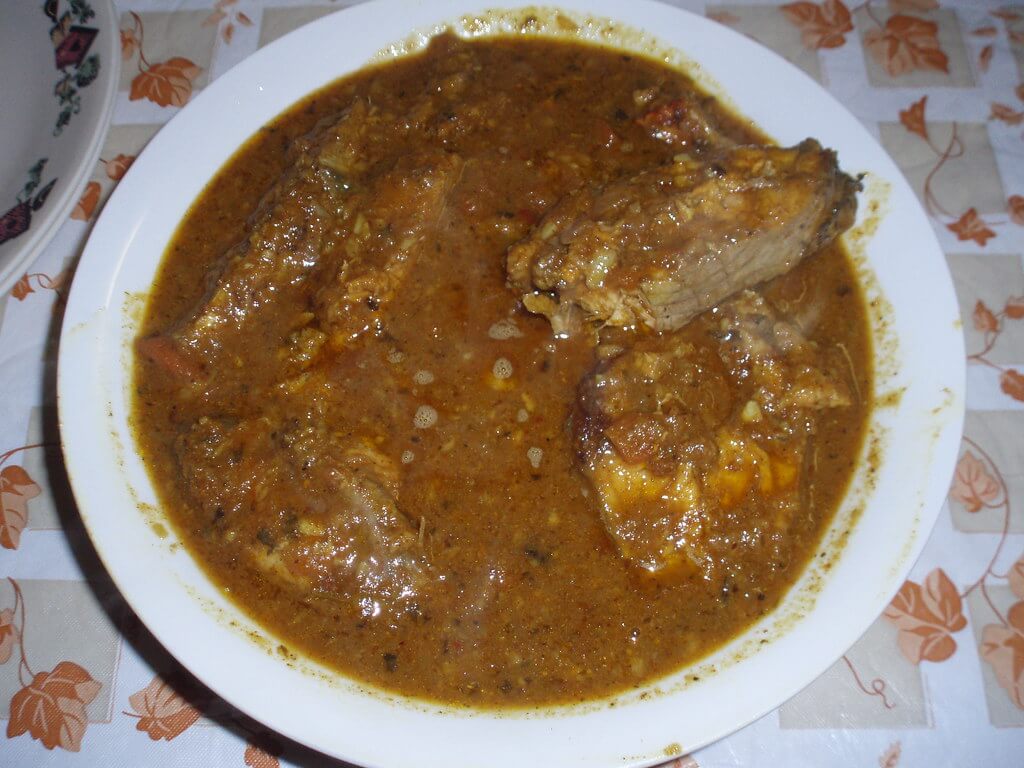
Chicken Tandoori: Chicken Tandoori is marinated chicken cooked in a tandoor, a clay oven. The chicken is marinated in yogurt and a blend of spices like cumin, coriander, paprika, turmeric, and garam masala, giving it a vibrant color and smoky flavor. It’s usually served with naan bread, mint chutney, and a side of salad.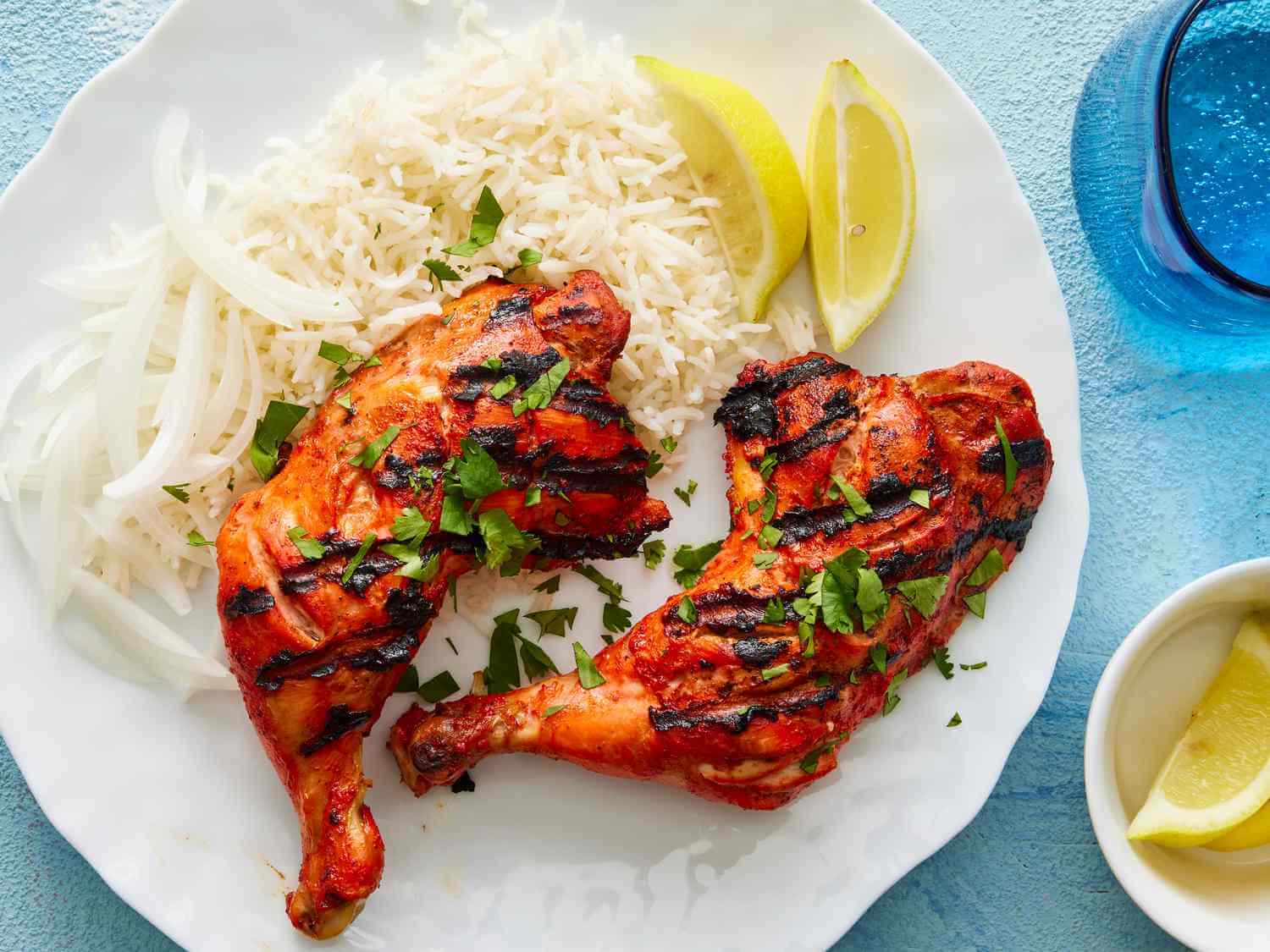
Beef Pulao: Beef Pulao is a fragrant rice dish cooked with tender beef pieces, basmati rice, and a mix of aromatic spices such as cardamom, cloves, cinnamon, and bay leaves. The beef is usually marinated with yogurt and spices before being layered with rice and slowly cooked, resulting in a flavorful and hearty one-pot meal often served with raita or salad.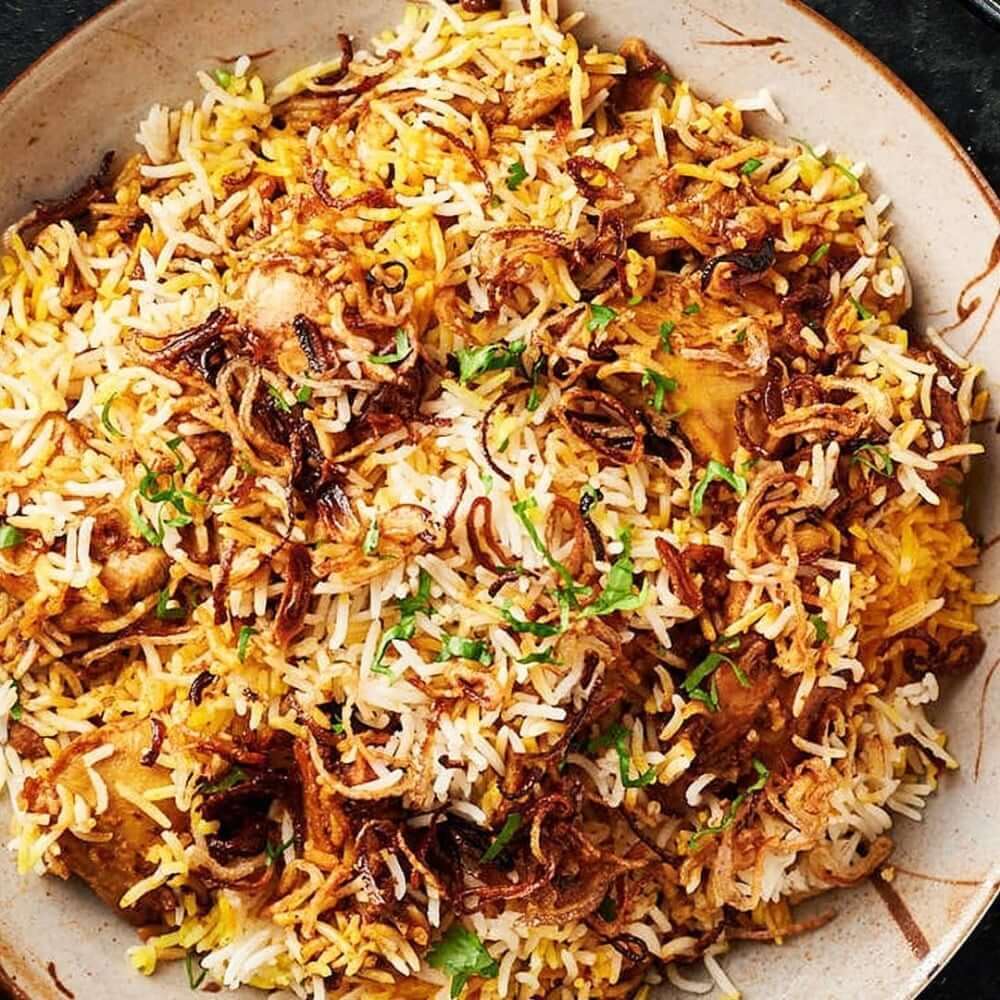
Kheer: Kheer is a creamy rice pudding made by simmering rice in milk until it thickens, flavored with cardamom, saffron, and sometimes nuts like almonds or pistachios. Sweetened with sugar or condensed milk, it’s a popular dessert often garnished with dried fruits and rose petals.
Rabri: Rabri is a rich, sweet dish made from thickened milk that’s simmered for hours until it reduces to a creamy consistency. It’s sweetened with sugar and flavored with cardamom, saffron, and sometimes nuts like almonds or pistachios, offering a delightful dessert with a dense texture.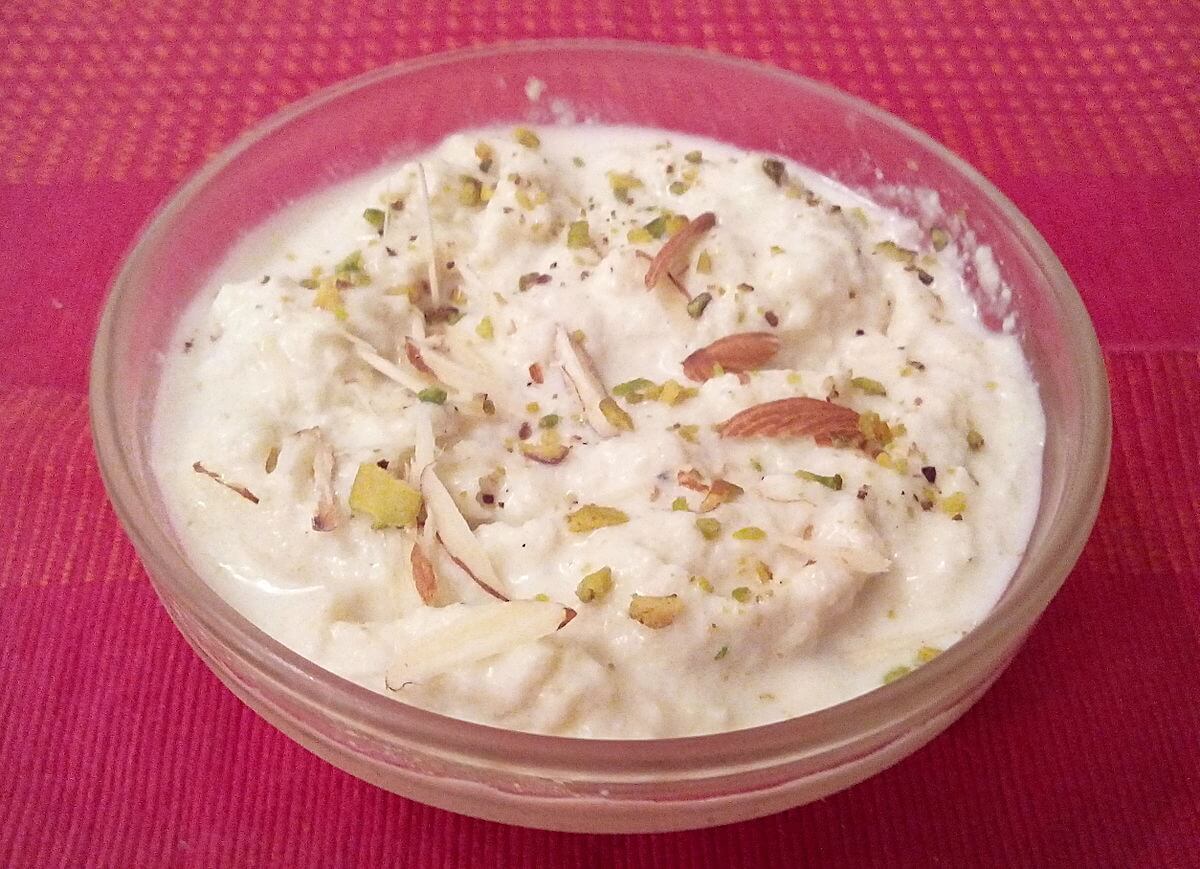
Sheer Khurma: Sheer Khurma is a special vermicelli pudding made during festive occasions like Eid. It’s prepared by cooking vermicelli with milk, sugar, and a variety of dried fruits such as dates, raisins, and nuts like almonds, cashews, and pistachios. The dish is flavored with cardamom and saffron, creating a creamy and aromatic dessert.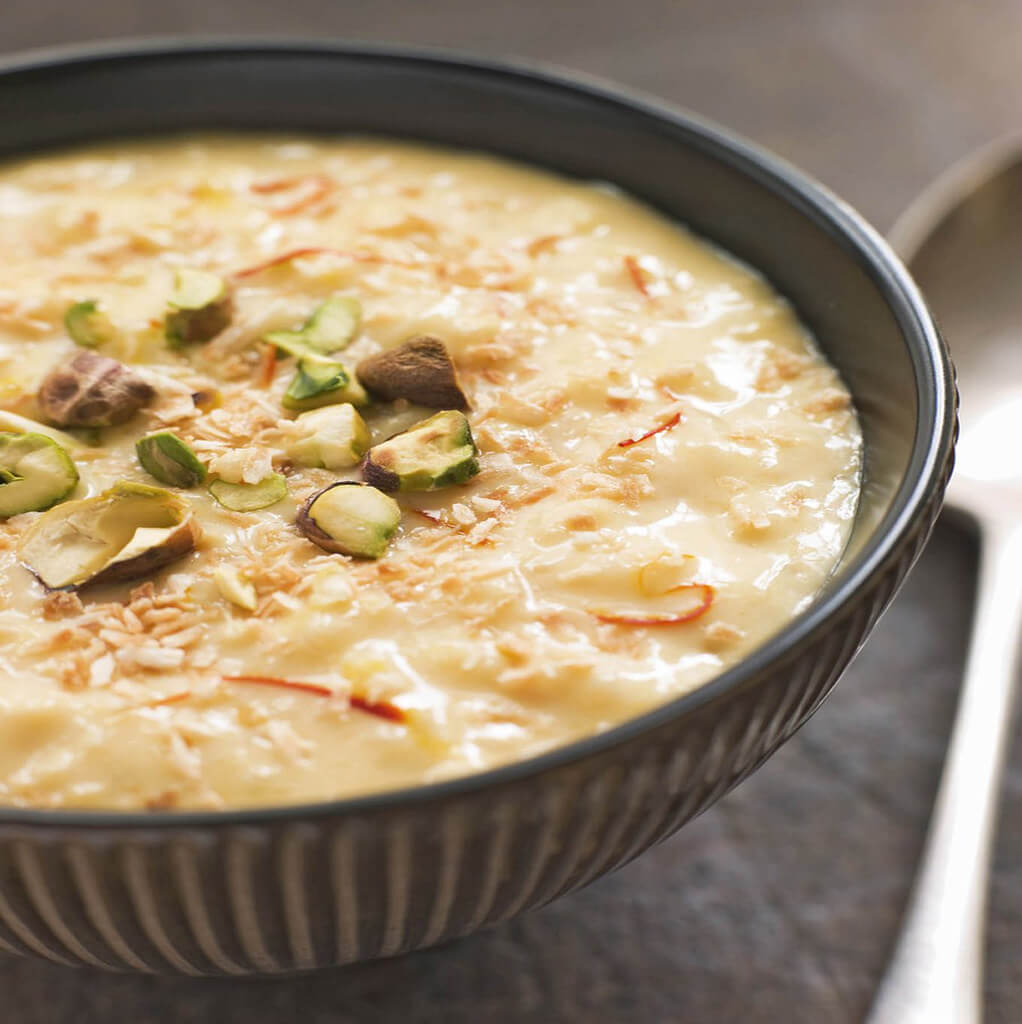
Gajar Ka Halwa: Gajar Ka Halwa is a classic dessert made from grated carrots cooked in ghee (clarified butter), milk, and sugar. It’s flavored with cardamom and garnished with nuts like cashews and almonds, resulting in a rich, sweet treat often enjoyed during winter months.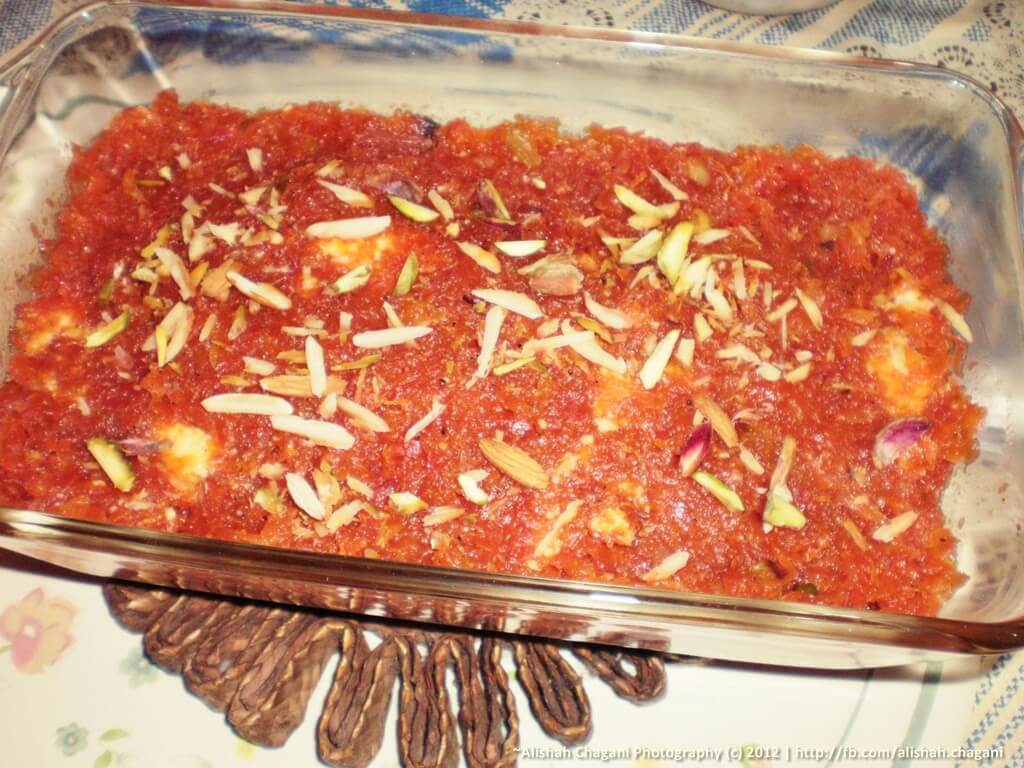
Paratha Rolls: Paratha Rolls consist of flaky, layered flatbreads (parathas) filled with various savory ingredients like spicy grilled meats (chicken or beef), vegetables, and sauces such as mint or chili. These rolls are a popular street food option, offering a delicious handheld meal.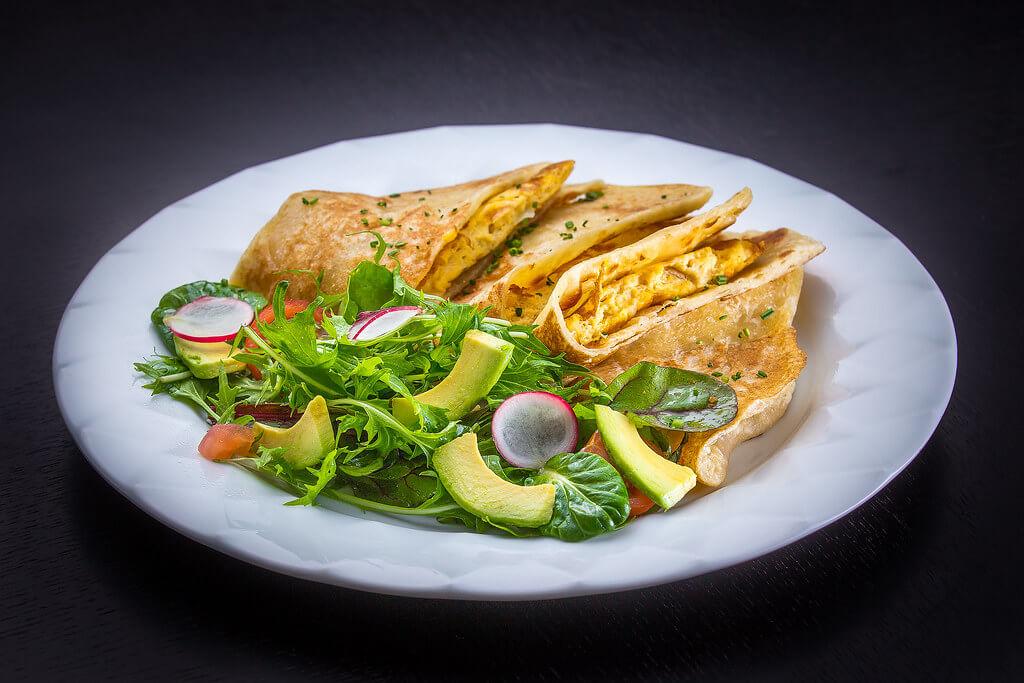
Butter Chicken: Butter Chicken is a creamy and mildly spiced curry made with tender chicken pieces cooked in a tomato-based gravy enriched with butter, cream, and spices like fenugreek, cumin, and coriander. It’s known for its velvety texture and is usually served with naan or rice.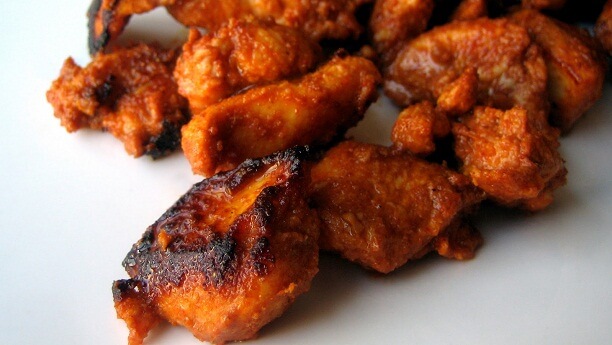
Zarda: Zarda is a sweet rice dish cooked with basmati rice, sugar, and ghee, and flavored with saffron, cardamom, and sometimes nuts like almonds and raisins. The rice is dyed with food color to give it a vibrant yellow or orange hue, offering a fragrant and sweet dessert often served during special occasions.
Shahi Tukray: Shahi Tukray is a royal dessert made with bread slices soaked in sweetened milk infused with cardamom and saffron. The bread slices are fried or toasted until golden and crispy, then soaked in the milk mixture, garnished with nuts, and served cold, offering a rich and indulgent sweet treat.
Charsi Tikka: Charsi Tikka is a spicy grilled meat dish, usually chicken or beef, marinated with a blend of spices including chili, ginger, garlic, and yogurt. The meat is skewered and grilled, resulting in a smoky and flavorful barbecue-style dish often enjoyed with naan and chutney.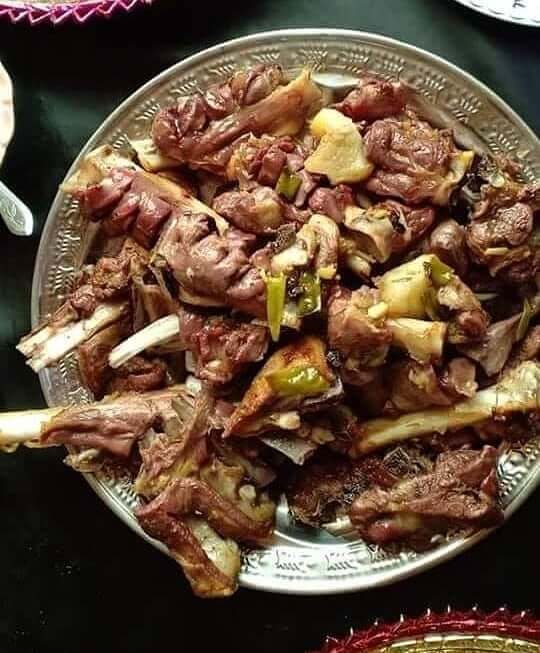
Dahi Bhallay: Dahi Bhallay is savory lentil-based dumplings soaked in yogurt and tamarind chutney, garnished with spices like chaat masala, cumin, and chili powder. These tangy and flavorful snacks offer a refreshing burst of flavors in every bite.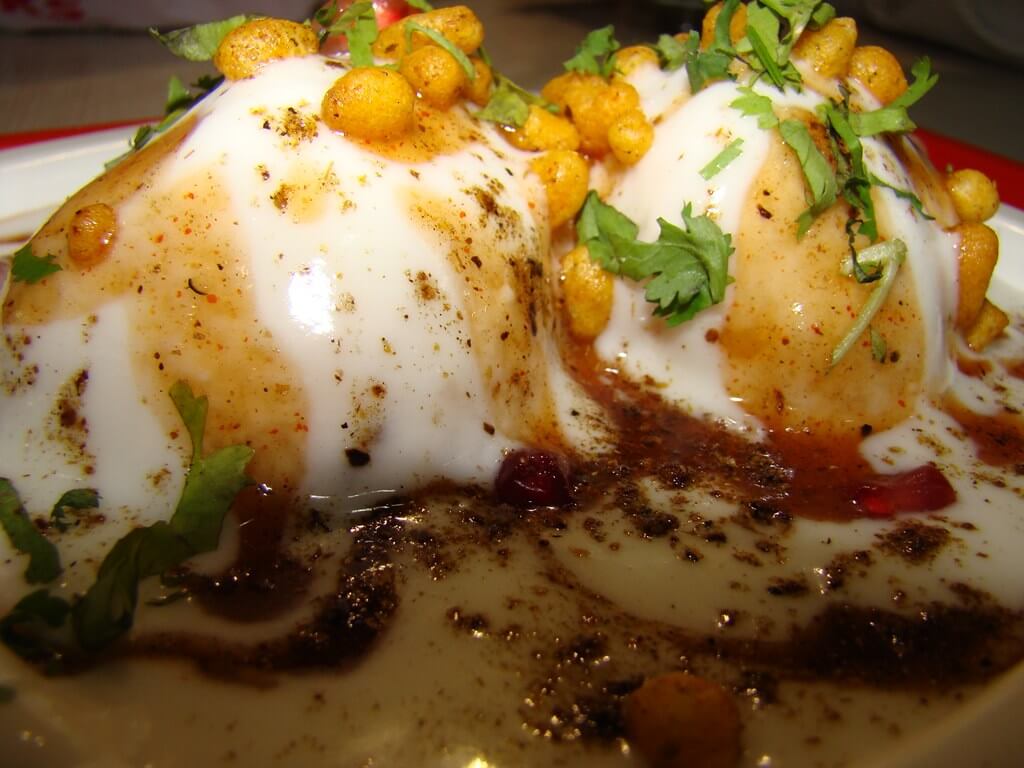
Sajji: Sajji is a whole roasted chicken dish seasoned with a mix of spices, typically stuffed with rice and cooked slowly over a charcoal fire. Originating from Balochistan but popular in Islamabad, it’s known for its smoky flavor and tender meat.
Chicken Shawarma: Chicken Shawarma is a Middle Eastern-inspired dish consisting of thinly sliced marinated chicken wrapped in pita bread or lavash, with a combination of vegetables, garlic sauce, and sometimes pickles or tahini. It’s a popular street food item in Islamabad.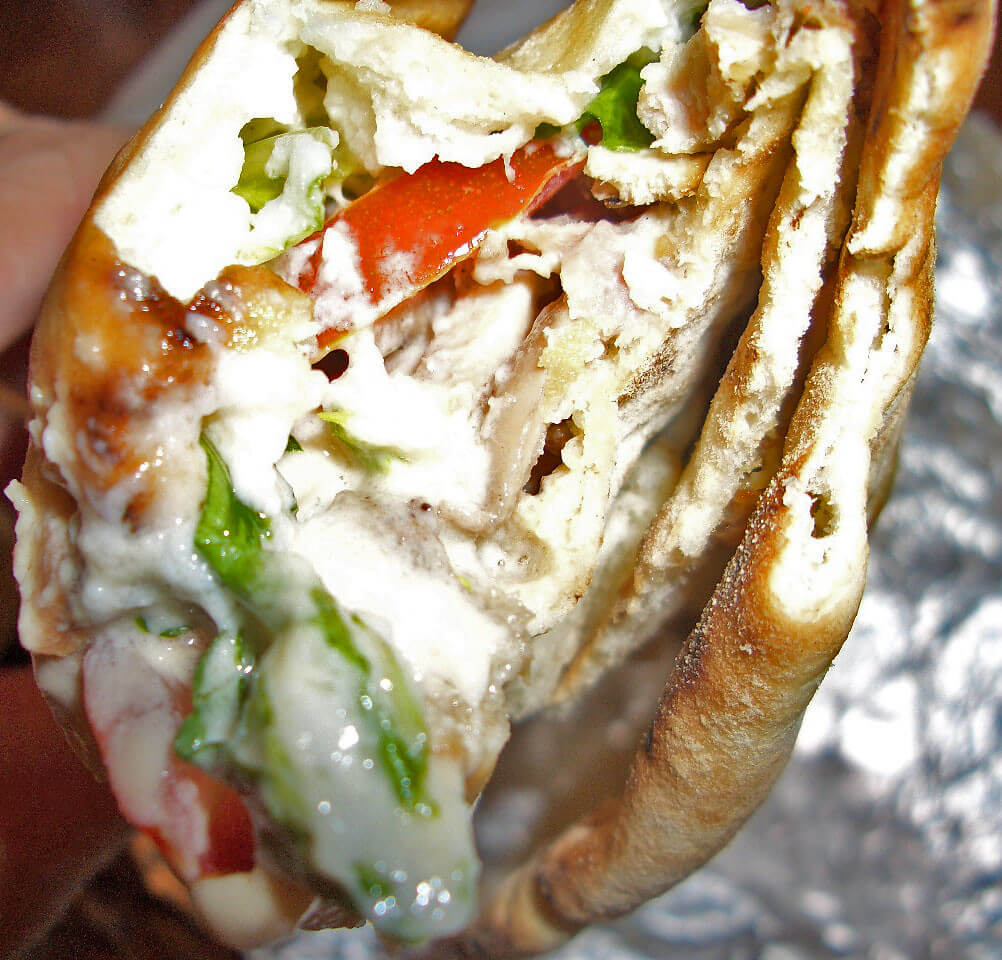
Palak Paneer: Palak Paneer is a North Indian dish made with paneer (Indian cottage cheese) cooked in a creamy spinach gravy. The spinach is blended with spices like cumin, coriander, and garam masala, creating a flavorful and nutritious dish often enjoyed with naan or rice.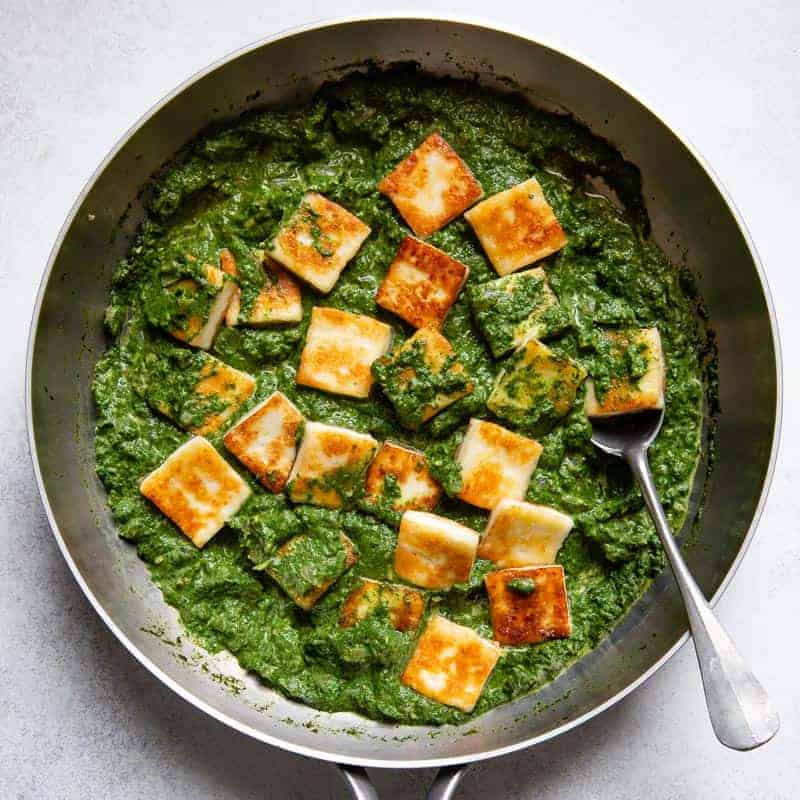
History and Culture
Culinary Heritage
The food in Islamabad carries a rich legacy deeply rooted in historical influences and cultural nuances. While avoiding specific dishes, the city’s culinary heritage draws from a tapestry woven by centuries of diverse influences. Islamabad’s gastronomic evolution finds its roots in the grandeur of the Mughal Empire, where the refinement of flavors and techniques left an indelible mark on the region’s cuisine. Beyond imperial influences, the city embraces indigenous culinary traditions that echo the essence of Pakistan’s culinary history without the need for specifics.
Regional Influences
The food in Islamabad is an amalgamation of regional flavors that mirror the diversity of Pakistan itself. This culinary landscape intricately weaves together the distinct culinary styles of various regions. From the robust and aromatic Punjabi cuisine to the flavorful and aromatic Kashmiri dishes, the influence of regions like Pothwari and others is evident in Islamabad’s culinary tapestry. The fusion of these regional influences results in a unique gastronomic identity that showcases the best of Pakistan’s diverse food culture.
Ingredients
Essential Components At the heart of food in Islamabad lies a handful of key ingredients that define its flavors and aromas. Saffron, with its luxurious hue and delicate fragrance, finds its way into both savory and sweet dishes, adding a touch of opulence. Cardamom, cumin, and an array of spices form the cornerstone of Islamabad’s culinary repertoire, infusing dishes with depth and character. These essential ingredients, carefully combined and balanced, create a symphony of flavors that captivate palates.
Indigenous Produce The city boasts an abundance of locally sourced ingredients that add a distinct charm to its cuisine. From seasonal produce like fresh fruits and vegetables to the finest meats and grains, Islamabad celebrates the bounty of its land. Exploring the indigenous produce unveils a kaleidoscope of flavors, showcasing the significance of locally-grown ingredients in shaping the diverse dishes that epitomize “food in Islamabad.” The utilization of these indigenous treasures elevates the authenticity and freshness of the city’s gastronomy, painting a flavorful canvas that embodies the essence of Islamabad’s culinary heritage.
Tips and Tricks
Best Dining Spots
For an unforgettable immersion into the diverse tapestry of “food in Islamabad,” explore the city’s renowned dining spots that promise an authentic culinary experience. Indulge your senses at established restaurants like [Restaurant Name], known for its tantalizing array of traditional dishes that encapsulate Islamabad’s flavors. Don’t miss the opportunity to wander through bustling street food stalls at [Street Name], where local vendors serve up iconic dishes like [Dish Name], offering a taste of the city’s vibrant street food culture. Additionally, delve into the vibrant atmosphere of markets such as [Market Name], where you can discover fresh produce and local delicacies, gaining a deeper understanding of Islamabad’s food heritage.
Cooking Insights
Bringing the essence of “food in Islamabad” into your own kitchen is a delightful journey that allows you to recreate the city’s flavors at home. Experiment with traditional Islamabad dishes using curated recipes that highlight the unique blend of spices and techniques. Explore the art of preparing [Dish Name], infusing your kitchen with aromas and flavors reminiscent of Islamabad’s culinary heritage. Discover the secret behind ingredient sourcing, guiding you to find authentic spices and local produce that capture the essence of Islamabad’s cuisine. Learn the intricacies of preparation techniques, unlocking the nuances that make these dishes quintessentially “food in Islamabad.”
Sustainability and Local Sourcing
Emphasis on Sustainability
In the realm of “food in Islamabad,” a growing emphasis on sustainability and locally sourced ingredients has become a pivotal aspect of the city’s culinary ethos. This shift towards sustainability aligns with the broader global movement and reflects the deep-rooted respect for the environment within Islamabad’s food culture. Restaurants and culinary initiatives in the city have embraced this ethos, recognizing the significance of sourcing ingredients sustainably. By prioritizing locally sourced produce and adopting eco-conscious practices, these establishments not only preserve the authenticity of flavors but also contribute to the overall well-being of the environment. This dedication to sustainability not only honors Islamabad’s culinary traditions but also serves as a commitment to a greener, more responsible future.
Prominent Markets
Within the bustling landscape of Islamabad’s markets, several local gems stand out as beacons of high-quality, locally sourced produce. Markets have garnered acclaim for their commitment to offering fresh, seasonal, and locally-grown ingredients that embody the essence of “food in Islamabad.” These hubs of gastronomic delight provide a platform for local farmers and artisans, showcasing an array of vibrant produce, aromatic spices, and traditional ingredients. Visitors can immerse themselves in the vivid sights and scents of these markets, discovering the richness of Islamabad’s culinary heritage through the offerings of these prominent suppliers. The dedication of these markets to supporting local sourcing not only enhances the quality of dishes but also fosters a sustainable and interconnected community that values the essence of Islamabad’s food culture.
Pairings and Recommendations
Beverage Pairings
When it comes to elevating the delightful flavors of “food in Islamabad,” the art of beverage pairings adds a whole new dimension to the dining experience. Embrace the rich tapestry of Islamabad’s cuisine by pairing dishes with beverages that harmonize beautifully. Begin your culinary journey with a refreshing glass of lassi, a traditional yogurt-based drink that complements spicy and flavorful dishes with its soothing properties. For those seeking warmth and comfort, chai, the aromatic and spiced tea, serves as a perfect companion to many dishes, enhancing their flavors. Additionally, explore local wines or beers that amplify the diverse flavors of Islamabad’s cuisine, offering a delightful harmony of tastes and textures.
Additional Food Recommendations
While savoring the essence of “food in Islamabad,” don’t miss the opportunity to explore beyond the outlined dishes. Venture into lesser-known eateries tucked away in the city’s corners, where culinary treasures await discovery. A hidden gem celebrated for its authentic preparation that encapsulates Islamabad’s culinary heritage. For a unique culinary adventure, a delightful fusion dish that showcases the city’s innovative gastronomic landscape. These additional recommendations offer a glimpse into the diverse array of dishes and culinary experiences that further enrich the exploration of Islamabad’s food culture.
Cultural Significance
Food and Tradition
In the tapestry of Islamabad’s culture, “food in Islamabad” holds profound significance, serving as more than mere sustenance. It is intricately woven into the fabric of traditions, celebrations, and familial bonds, embodying the essence of shared heritage. Across generations, recipes are passed down as treasured heirlooms, preserving the legacy of Islamabad’s culinary traditions. Festivals and gatherings are imbued with the aroma of cherished dishes, each bite carrying the weight of cultural identity. From the grandeur of weddings to the simplicity of daily meals, “food in Islamabad” stands as a testament to the city’s rich cultural tapestry and its inherent ties to traditions.
Social Context
Beyond its flavors and aromas, food in Islamabad serves as a conduit for fostering social connections and nurturing relationships. The act of sharing a meal transcends mere nourishment; it is a cornerstone of communal bonding. Whether in bustling eateries or intimate home gatherings, meals become a shared experience that unites individuals, fostering camaraderie and strengthening social ties. Moreover, food acts as a bridge between past and present, preserving cultural heritage by honoring age-old recipes and culinary customs. Through communal feasts and social gatherings, the people of Islamabad celebrate their cultural heritage, passing down stories and traditions with each shared meal, ensuring the continuity of their culinary legacy for generations to come.
Conclusion
In the vibrant tapestry of Islamabad’s cultural mosaic, food in Islamabad stands as a vibrant emblem of diversity, tradition, and shared heritage. The city’s culinary landscape, adorned with an array of flavors and aromas, reflects the soul of Pakistan’s gastronomic identity. Its significance transcends the mere act of dining; it encapsulates a narrative of cultural richness and community bonds. Through the myriad of dishes, spices, and culinary traditions, Islamabad’s food culture embodies a fusion of histories, regional influences, and familial legacies. To fully immerse oneself in this captivating culinary landscape, exploring the bustling markets, savoring authentic dishes in traditional eateries, and engaging in communal dining experiences offer a gateway to understanding the heart and soul of “food in Islamabad.” It’s an invitation to taste, cherish, and celebrate the mosaic of flavors that define the city’s gastronomic identity.

